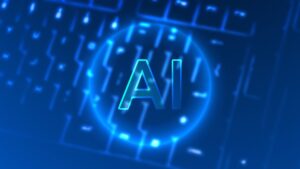Data literacy and mastery of data analytics are among the most important skills to unlock the full potential of AI, says Libby Duane Adams, Chief Advocacy Officer of Alteryx. Companies should build a multi-skilled workforce that feels confident in the use of AI to address different use cases, combining extensive domain knowledge with the ability to “speak data”.
With the explosion in business data volumes showing no signs of slowing, accessible, automated analytics have become a crucial focus for functional areas such as HR as they look for new opportunities to deliver intelligence at scale. Taking advantage of automated data-driven insights is empowering HR departments to understand the “why” behind the “what” while reducing the time it takes to make well-informed decisions that proactively address factors that influence employee retention and engagement strategies.
Unlocking HR insights through intelligent automated data analytics

Traditionally, HR professionals might examine past experiences or use heuristics to explain changes in performance of an organisation, a team, or an individual. They might look at common variables that impacted performance in the past. In practice, this means manually examining multiple internal data sources and data types. But this approach can overlook the potential impact of more nuanced factors such as emerging trends or less frequent variables that weren’t particularly significant before.
Without comprehensive real-time analysis of all the different data sources, the wealth of potentially valuable employee data can essentially be worthless, leaving HR professionals frustrated and unable to obtain the insights they need to improve business outcomes. However, HR professionals empowered to leverage accessible analytics augmented with generative AI capabilities to automate the insights generation process now have the ability to make data-driven decisions in real-time.
Data literacy and command of data analytics required
Technology is evolving at a rapid pace. AI and machine learning technologies offer tremendous opportunities to automate manual processes, gain insights and deliver data intelligence at scale. However, with data at the foundation of AI, data literacy and a command of data analytics are arguably some of the most important skills for unlocking AI’s full potential. That’s why business and tech leaders must build for the future now by developing the skills and using the available technology to ensure HR and other departments can take advantage of this intelligence era.
Developing the soft skills of the future

Upskilling doesn’t mean all employees should become data scientists. After all, the art of extracting insights from enterprise AI applications doesn’t depend entirely on technical skills. Rather, it’s essential to build a multi-skilled workforce that feels confident in the use of AI to address different use cases, combining extensive domain knowledge with the ability to “speak data”. Making accessible, easy-to-use analytics technology available to all HR employees helps to bridge the gap between data analysis – a task traditionally performed by data scientists and engineers – and HR decision-makers to empower everyone to extract data-driven insights.
When working with generative AI, it’s crucial to ask the right questions. Yet, despite growing recognition of the importance of critical thinking in collaborating with and questioning the outputs of AI applications, these were among the lowest-ranked skills in terms of priority, according to a recent report. „Hard” skills, including expertise in emerging technologies like AI, data analysis, and data mining, all ranked as more in demand than “soft” skills, such as digital literacy, team leadership, and time management.
Validate the answers given by AI

The ability to scrutinise any answers given by AI is essential to ethics and governance. So, when you consider that three-quarters (73%) of decision-makers admitted concerns around AI-produced answers in their organisation, the low priority given to critical thinking in the talent assessment process is something of a concern.
It’s important to remember that humans will have views into the impact on the business that are not obvious to AI. Humans will always remain key to asking the right questions and defining the scope of AI apps. Questions informed by domain-specific expertise can enable AI to deliver far more effective outputs. This is why upskilling domain experts with data literacy and analytics skills is so critical to success.
Data analytics and platforms
Accessible data analytics tools and platforms that empower those without data science skills to deliver insights are available today. Drag and drop no-code interfaces that combine a robust, intuitive layer of engagement via a natural language prompt means businesses can expand the reach of AI and machine learning applications across the organisation.
The growing use of these platforms demonstrates perfectly how AI is no longer the sole domain of data scientists – (almost) anyone can use it for (nearly) any use case.
It shouldn’t be news to anybody that AI will continue to evolve. Businesses looking to capitalise on this innovation need to get their technology rollout right by embedding data literacy and analytics upskilling in their strategies.
A flexible and dynamic approach to upskilling existing employees and hiring talent with AI-related skills forms the basis of a winning strategy. The development of AI skills, combined with domain-specific business context and an emphasis on transferable soft skills will help create an internal data-literate culture capable of delivering AI to deliver data-driven insights at the speed of business.
Please also read the following posts:
- Crafting and Executing Impactful Recruitment Marketing Strategies
- Mapping the Future of Work: Four Imaginary Scenarios
Olivia Duane Adams (Libby) is the chief advocacy officer (CAO) and co-founder of Alteryx. She is responsible for strengthening upskilling and reskilling efforts for Alteryx customers to enable a culture of analytics, scaling the presence of the Alteryx SparkED education program and furthering diversity and inclusion in the workplace.

